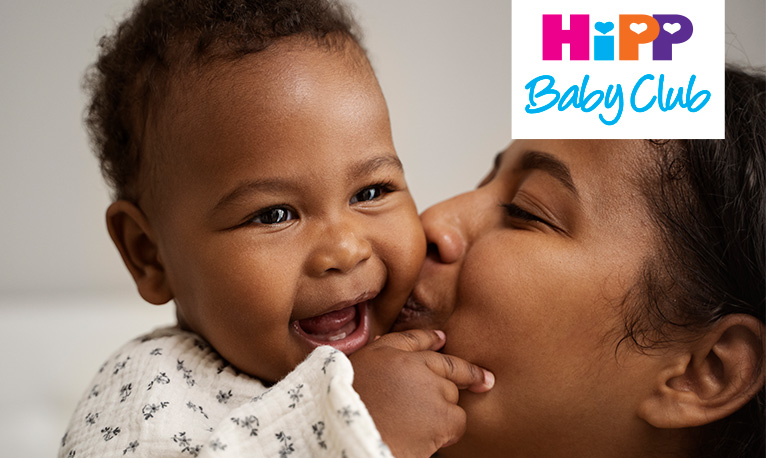How Your Age Affects Your Fertility
Conception | | Kate Davies
We’ve all heard the term ‘ticking biological clock’. The three words that put fear into every woman’s mind, and overwhelming pressure! However, is there any truth in the statement that a women’s biological clock ticks away, especially when the media report that celebrities are having babies in their late 40’s and early 50’s, and what does the science really tell us?
In this article we will discuss the impact of age on fertility, how long it can take to conceive depending on your age and how age can impact on IVF success. We’ll also touch on the common complications relating to age and pregnancy and whether age also impacts on male fertility. We’ll also provide you with some actionable tips on optimising your fertility as you get older, all the things that you can take away and do to help you reduce the time it takes you to conceive.
How is your fertility is impacted by your age?
In today’s society, many women are choosing to delay motherhood. The reasons women may make this decision is complex. They may choose to further their career, want to be financially stable before having children or have not yet found the partner they wish to have children with1. It is also evident that women over-estimate the age at which fertility declines2, perhaps not helped by the media reporting we mentioned earlier! What the media, and the celebrities don’t tell you, is that in most cases, these pregnancies will be by egg donation.
So, what does the science tells us about age and fertility, and your chance of pregnancy by age? It is well known that at birth you are born with all the eggs you’ll ever have. Each month we use an egg when we ovulate, and naturally lose many more each cycle too. The probability of pregnancy in women aged between 19-26 is twice as high compared to women aged 35-393. Uncomfortable reading for sure. Therefore, the optimal age for childbearing is between 19-35 years.
Statistically by month, a woman in her early to mid-20s has a 25–30% chance of getting pregnant every month. However, by the age of 40, the chance of getting pregnant in any monthly menstrual cycle is around 5%. That said, it’s important to know that no one women is purely a statistic and what you do (or don’t do), during your reproductive life, can influence your fertility both positively and negatively (We’ll be touching on some of these aspects later).
How long does it take to get pregnant depending on how old you are?
80% of heterosexual couples, where the woman is under 40 and the couple are having regular sex, will have achieved pregnancy by 12 months, which is reassuring news. We can further understand this percentage by breaking it down by the average time to get pregnant by age:
- 70% of women aged 30 will conceive within 12 months
- 60% aged 35, by 12 months
- 40% aged 40, by 12 months4
How can age impact on your IVF success?
While in vitro fertilisation (IVF) helps many women and couples conceive, much like natural conception it is far less successful as women get older. The live birth rate for women under 35 undergoing IVF is 33%, and sadly this falls to just 3% for women aged between 43 and 505. This is because, just as in natural conception, the quality of the eggs harvested in assisted techniques, such as IVF, deteriorates with age. Whilst these techniques stimulate the release of more follicles to create embryos, IVF cannot compensate for the effects of reproductive ageing on egg quality.
What are the complications related to age and pregnancy?
As well as it being more difficult to conceive as you get older, sadly the risk of pregnancy complications increases with age too. Miscarriage occurs in approximately 1:3 women, however your risk of having a miscarriage increases with age. To explain this better a miscarriage will occur in:
- 1:10 pregnancies in women under 30
- 2:10 pregnancies in women aged 35-39
- 5:10 pregnancies in women over 456
Complications for the baby include chromosomal abnormalities such as Downs Syndrome or stillbirth. Advanced age also increases the risk of maternal health problems such as gestational diabetes, placenta praevia (when the placenta covers all or part of the cervix, which increases the risk of the placenta detaching), pre-eclampsia and high blood pressure, as well as a higher chance of having a caesarean section and complications at birth.
However, if you are having a baby later in life, you can be reassured that your doctor and midwife will monitor you regularly to ensure that you have a safe pregnancy and birth, and a healthy new baby.
How does age impact on male fertility?
Whilst we have known for some time about the effects of female age on fertility, recent studies have found that the age also impacts on male fertility.
Men continue to produce sperm throughout their adult life, however it may surprise you that male fertility starts to decline at around 45 years as sperm quality decreases. As men age, a higher percentage of sperm DNA fragmentation and genetic mutations are found in sperm. This leads to a longer time to pregnancy, increased rate of miscarriage and the greater chance of conceiving children with developmental disabilities and mental health conditions7.
Whilst it may be more difficult to improve egg quality, it is reassuring to know that in many cases men can improve sperm quality by making healthy lifestyle changes. IVF techniques, such as intracytoplasmic sperm injection (ICSI), is a common and effective treatment for many types of male factor infertility. In the laboratory a single healthy sperm is injected into the egg, bypassing any potential problems the sperm may have in getting inside the egg.
Things you can do to maximise your fertility as you get older
Lifestyle
Maintaining a healthy lifestyle is vital when it comes to optimising your ability to conceive. For both men and women, enjoying a nutritious diet that is rich in fruit and vegetables, wholegrains, protein and omega 3’s, but low in refined carbohydrate is the best way to nourish your body and, along with regular exercise, keep your BMI within the normal range.
It is recommended that women avoid alcohol when trying to conceive. Men should keep alcohol low and avoid binge drinking. It goes without saying that both men and women should avoid smoking and recreational drugs. Finally, get a regular sexual health screen and keep up to date with your cervical smear test.
Supplements
It is recommended that women who are trying to conceive should take a daily folic acid supplement and vitamin D in the winter and autumn months. There is emerging evidence that for women over the age of 35 the supplement CoEnzyme Q10 has a beneficial effect on the mitochondria, or if you like, the battery pack of the cell, helping to improve egg quality8. However, to fully understand the benefits of this supplement, more research is needed9.
Men over the age of 45 or men with an abnormal sperm test may benefit from taking supplements containing antioxidants to improve sperm DNA damage. There is evidence that taking vitamins C and E as well as Zinc and folate helped to improve sperm10 and emerging evidence for the use of the supplement CoEnzyme Q10 in men as well as women11.
Fertility preservation
Many women who find themselves not yet ready to start a family are turning to egg freezing to preserve their fertility. Many private fertility clinics offer this option and if you are considering this, it is worth getting advice from your doctor and doing your research. The technology for egg freezing has improved over the last few years, however the success rates are still low at 18% and therefore offers no guarantee of achieving a successful pregnancy.
Factors to Consider When Trying to Conceive Later in Life
As we have seen, the age at which a woman or couple decide to start trying for a family is governed by several complex personal, social, professional and life circumstances. It is possible to conceive when you are older, but it may take a little longer to create your family. Many women and couples who try to conceive and become pregnant in their late 30s and early 40s have perfectly healthy pregnancies and babies. However, it is important to remember that:
The optimum reproductive age range is between 19-35
The older you are the longer it may take you to conceive
IVF does not compensate for age
The risk of complications in pregnancy increases as you get older
Ageing impacts on sperm health as well as egg health
Maintaining a healthy lifestyle and taking the right supplements can help to optimise your fertility
Egg freezing is an option available for you however the success rates remain low
If you are over the age of 35 and looking to start trying for a family, reach out to your doctor for more help and advice, and you can find more information in this handy Planning A Pregnancy Tool .You may also like to arrange a consultation with the author of this article and fertility nurse consultant Kate Davies, Kate will advise you on everything you need to do to optimise your fertility over 35 and the options available to you.
References
- Tydén T, Svanberg AS, Karlström PO, Lihoff L, Lampic C. Female university students' attitudes to future motherhood and their understanding about fertility. Eur J Contracept Reprod Health Care. 2006 Sep;11(3):181-9. doi: 10.1080/13625180600557803. PMID: 17056448.
- Peterson BD, Pirritano M, Tucker L, Lampic C. Fertility awareness and parenting attitudes among American male and female undergraduate university students. Hum Reprod. 2012 May;27(5):1375-82. doi: 10.1093/humrep/des011. Epub 2012 Mar 8. PMID: 22407698.
- Colombo B, Masarotto G. Daily fecundability: first results from a new data base. Demogr Res. 2000 Sep 6;3:[39] p.. PMID: 12178154.
- Gnoth C, Godehardt D, Godehardt E, Frank-Herrmann P, Freundl G. Time to pregnancy: results of the German prospective study and impact on the management of infertility. Hum Reprod. 2003 Sep;18(9):1959-66. doi: 10.1093/humrep/deg366. PMID: 12923157.
- HFEA (2021) Fertility treatment 2021: preliminary trends and figures https://www.hfea.gov.uk/about-us/publications/research-and-data/fertility-treatment-2021-preliminary-trends-and-figures/#:~:text=In%202021%2C%20the%20average%20IVF,from%2028%25%20in%20the%201990s. Last accessed 22.01.24
- NHS (2022) Miscarriage: Causes https://www.nhs.uk/conditions/miscarriage/causes/#:~:text=Things%20that%20increase%20your%20risk&text=Your%20age%20can%20also%20have,pregnancies%20will%20end%20in%20miscarriage. Last accessed 22.01.24
- Kong, A. et al. Rate of de novo mutations and the importance of father's age to disease risk. Nature 488, 471–475 (2012)
- Vaamonde, D., Hackney, A.C., Algar-Santacruz, C., Garcia-Moreno, M.J., García-Manso, J.M. (2020). Coenzyme Q10 in Fertility and Reproduction. In: López Lluch, G. (eds) Coenzyme Q in Aging. Springer, Cham. https://doi.org/10.1007/978-3-030-45642-9_14
- Rodríguez-Varela C, Labarta E. Does Coenzyme Q10 Supplementation Improve Human Oocyte Quality? International Journal of Molecular Sciences. 2021; 22(17):9541. https://doi.org/10.3390/ijms22179541
- Schmid, T. E., Eskenazi, B., Marchetti, F., Young, S., Weldon, R. H., Baumgartner, A., Anderson, D., & Wyrobek, A. J. (2012). Micronutrients intake is associated with improved sperm DNA quality in older men. Fertility and sterility, 98(5), 1130–7.e1.
- Salvio G, Cutini M, Ciarloni A, Giovannini L, Perrone M, Balercia G. Coenzyme Q10 and Male Infertility: A Systematic Review. Antioxidants. 2021; 10(6):874. doi.org/10.3390/antiox10060874


